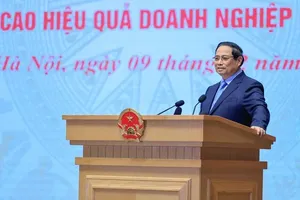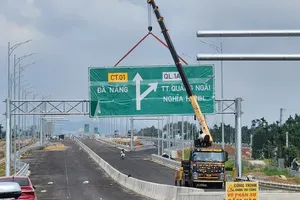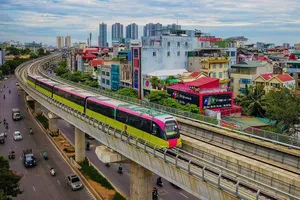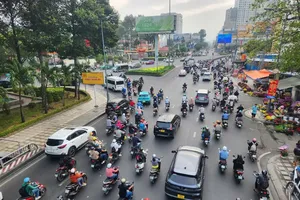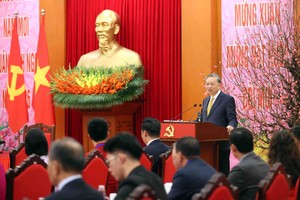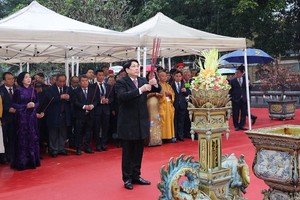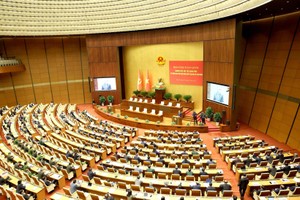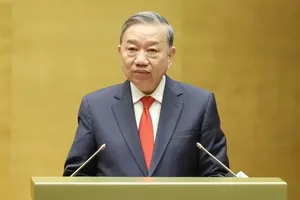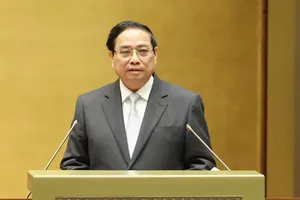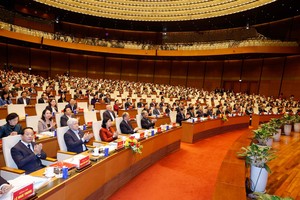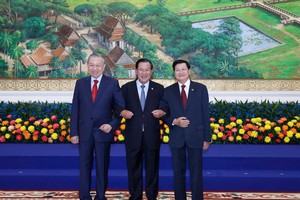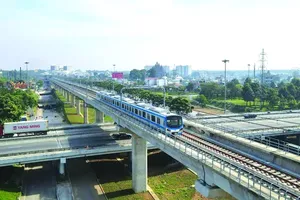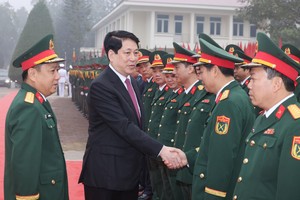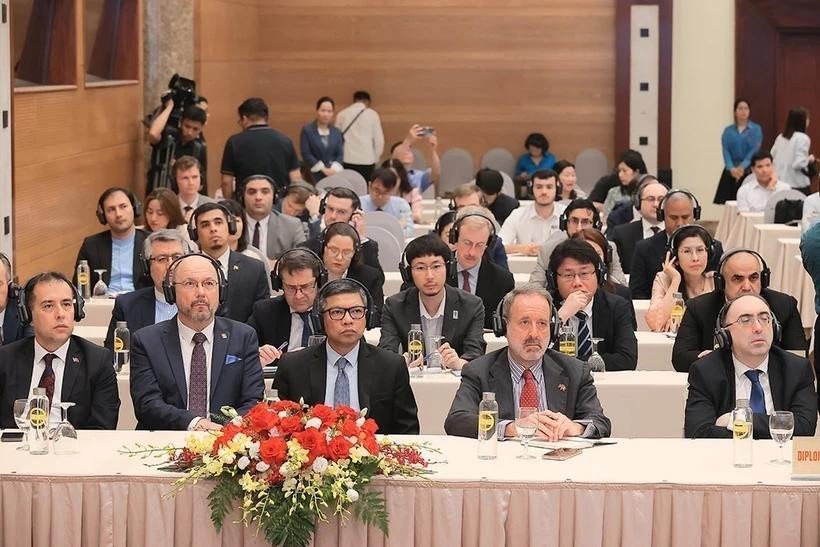
Responding to concerns from international reporters about the potential impact of the reform scheme on the business environment, Deputy Minister of Finance Ho Sy Hung emphasized that the changes will not pose obstacles to investment or business operations.
Jointly held by the Party Central Committee's Commission for Propaganda and Mass Mobilisation, the Party Central Committee's Organisation Commission, the National Assembly Office, the Ministry of Home Affairs, and the Ministry of Foreign Affairs, the event focused on issues related to amendments to certain articles of the 2013 Constitution, and the implementation of the two-tier local administration model starting July 1, 2025.
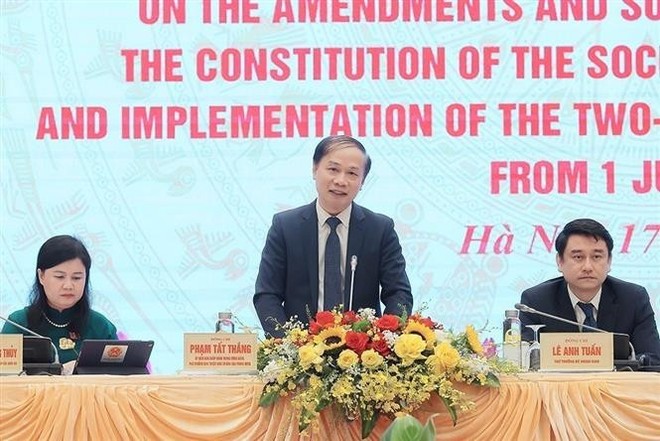
Responding to concerns from international reporters about the potential impact of the reform scheme on the business environment, Deputy Minister of Finance Ho Sy Hung emphasized that the changes will not pose obstacles to investment or business operations. Instead, they will help create a broader space for socio-economic development, streamline administrative procedures, and delegate greater authority to local units, helping to reduce at least 30 percent of administrative processes and significantly lower compliance time and costs.
Regarding foreign investment attraction, the deputy minister said the policy for attracting foreign investment does not depend on the organization of a two-tier local administration model.
Vietnam aims to implement the model in tandem with the restructuring of its administrative apparatus and the reform of its management mechanisms, shifting toward a proactive, service-oriented governance model that better serves the people and actively supports and facilitates business and investment activities in the country, he said.
Meanwhile, Vice Chairman of the Party Central Committee's Commission for Propaganda and Mass Mobilisation Pham Tat Thang stressed that the adoption of the Resolution amending and supplementing certain articles of the 2013 Constitution, and the revised Law on Organisation of Local Government, marks a historic milestone, laying a solid legal foundation for the implementation of the two-tier local administration model, which will be introduced for the first time in Vietnam to facilitate the implementation of key policies of the Party and the State on national development across sectors.
According to Mr. Pham Tat Thang, the primary goal of amending the 2013 Constitution and restructuring the local administration model is to build administrations that are closer to the people and better serve them, and pave the way for a new phase in national development with a long-term vision that spans at least the next 100 years.
Vice Chairwoman of the NA's Committee for Legal and Judicial Affairs Nguyen Phuong Thuy said the amendments to the Constitution is an urgent requirement to establish a constitutional basis for streamlining the political apparatus refining the two-tier local administration model and opening up new development future for the country.
The NA has considered amending and adopting many other laws and resolutions at its ongoing 9th session to ensure consistency with the amended provisions of the Constitution, including the revised Law on Organisation of Local Government, the amended Law on Cadres and Civil Servants, and the Law on amendments and supplements to a number of articles of the Law on Promulgation of Legal Documents, she added.
Deputy Minister of Home Affairs Truong Hai Long said the NA has passed the revised Law on Organisation of Local Government, providing the legal basis for the Government, and relevant ministries, sectors, and agencies to issue legal documents and guidelines for implementing the two-tier local administration model starting from July 1, 2025.
The law consists of 7 chapters and 54 articles. After the re-arrangement of administrative units, Vietnam now has 34 provincial-level administrative units, including 28 provinces and six centrally-run cities.
The law has refined the principles for clearly defining the delegation and decentralization of powers between the central government and local administrations, as well as among different levels of local administrations, in a scientific, synchronous, and unified manner, Long said.
Mr. Truong Hai Long stated that Vietnam has taken "synchronized, thorough, and comprehensive" steps to prepare for the deployment of the new administration model, focusing on completing the legal framework, building appropriate personnel arrangements plans, investing in infrastructure and digital systems to ensure streamlined administrative procedures, and intensifying public communications to build strong consensus among the people.

